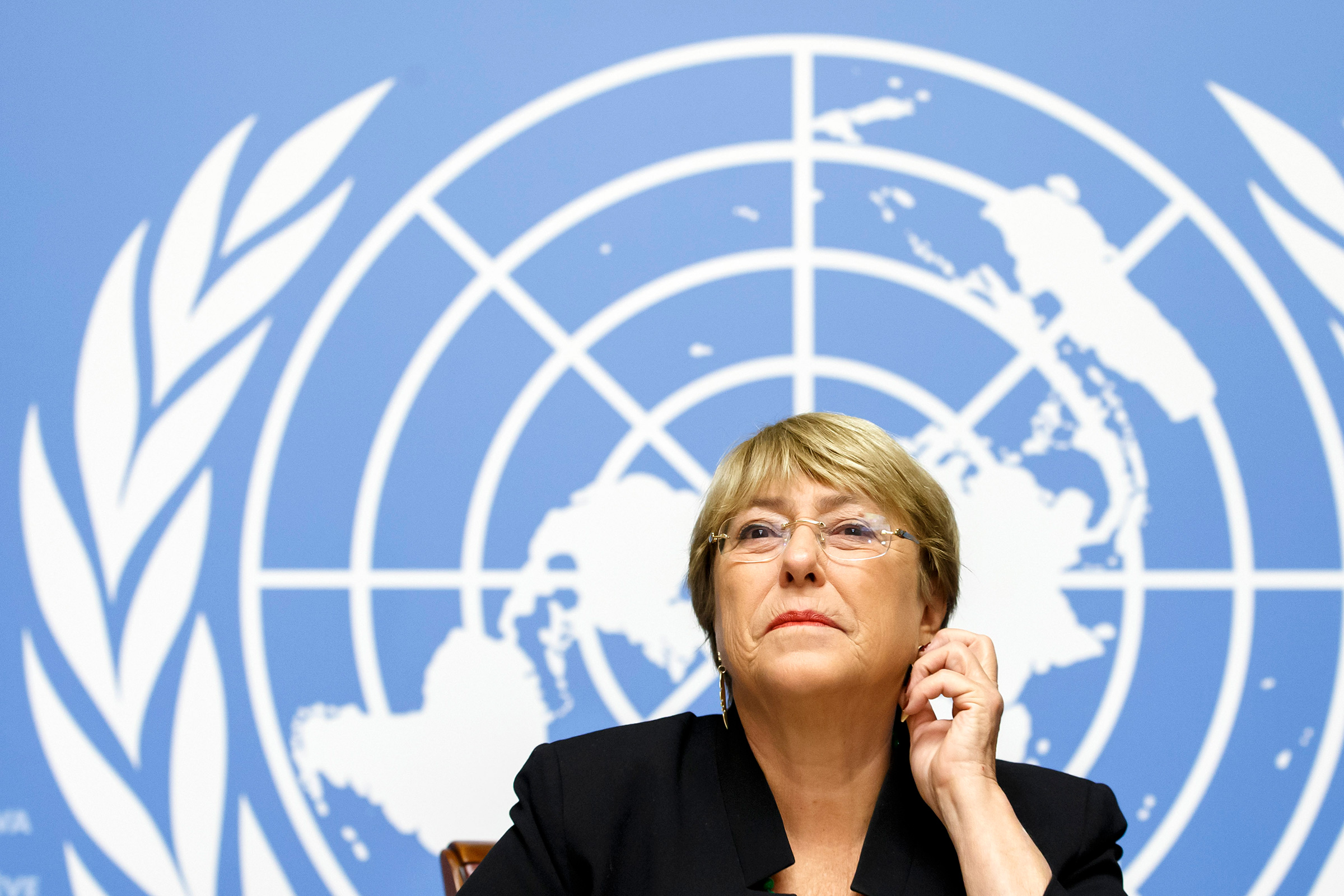The COVID-19 pandemic is laying bare some of the most glaring vulnerabilities of our societies. Millions of the people at greatest risk of contagion are those whose needs are often overlooked. To uphold their fundamental rights to life and health—and prevent the pandemic from spreading rapidly across the whole of society—we need to take urgent measures to resolve the specific risks and impacts of COVID-19 on a number of groups.
These include older people, especially those who live in institutions or on their own; people in prisons and mental-health facilities; members of neglected and marginalized minorities; and the poor, who have little access to health care, no safety net and who, by necessity, live in cramped and unsanitary conditions. Many of these are also migrants, who are often unable to access medical treatment or social protections and are already targeted by stigma and hatred.
At this moment, we cannot afford to leave anyone behind—especially those forced to leave their homes and communities. Millions of migrants around the world either have no access to health care or are afraid to seek it, for fear of being detained. That detention could be lethal, and it is important, in the context of this pandemic, that countries release as many people as possible from institutional confinement. There is also an urgent need to upgrade vital services for all people, including migrants, who live in under-serviced, overcrowded informal settlements. The emergence of COVID-19 cases in camps and migrant-detention centers in several countries—including Bangladesh, Burkina Faso, Greece and Syria—is another pressing concern.
Portugal’s decision to give all migrants full access to medical care and other social services is a sound and intelligent strategy. Italy, New Zealand and South Korea have also taken useful measures in this context—limiting deportations and extending visas, for example. Other nations should quickly take up these kinds of measures and work with civil-society groups already providing assistance in many places.
But instead of taking action to increase the health response, some leaders are seeking to capitalize on people’s fear of COVID-19 by deflecting anger toward vulnerable communities like migrants—people already unfairly blamed for society’s ills.
Many of the health care workers on the front lines are themselves migrants or from minority communities. It is well past time we acknowledge these contributions by documented and undocumented migrants, and push back against the discrimination they, and many members of minority communities, endure.
It is now evident how much any one person’s health depends on everyone’s health. Only measures that protect the rights of all people will effectively control this pandemic. National systems for health care have been weakened by a budgetary approach that views them as a cost rather than an investment. Health and education, like other human rights, help build stronger and more resilient societies.
This is a time to act together; only concerted action can effectively combat a threat of this scale. Already, WHO’s work has been essential to national efforts to detect, test, isolate and treat people infected by COVID-19. The pandemic demonstrates the importance and power of collective international action, and the multilateral institutions that can coordinate our capacity to control this pandemic. Avoiding the collapse of any country’s medical system is a matter of immediate interest to all of us. And countries will also need to support one another in facing the coming economic and social challenges, particularly in developing states.
My message to the public is to stand up for the rights of everyone around you, as best as you can. In the words of Albert Camus, “the only way to fight the plague is with decency.” My message to leaders: the only effective way to fight an epidemic is with the trust and participation of everyone. Earn that trust by serving the people’s interests; ensuring decent livelihoods and lives; listening to their concerns; and advancing their freedoms and rights. This is a moment all of us will remember for the rest of our lives. It is time to live up to it.
Bachelet is the U.N. High Commissioner for Human Rights
This article is part of a special series on how the coronavirus is changing our lives, with insights and advice from the TIME 100 community. Sign up for access to TIME 100 Talks, our virtual event series, featuring live conversations with influential newsmakers.
- Donald Trump Is TIME's 2024 Person of the Year
- TIME’s Top 10 Photos of 2024
- Why Gen Z Is Drinking Less
- The Best Movies About Cooking
- Why Is Anxiety Worse at Night?
- A Head-to-Toe Guide to Treating Dry Skin
- Why Street Cats Are Taking Over Urban Neighborhoods
- Column: Jimmy Carter’s Global Legacy Was Moral Clarity
